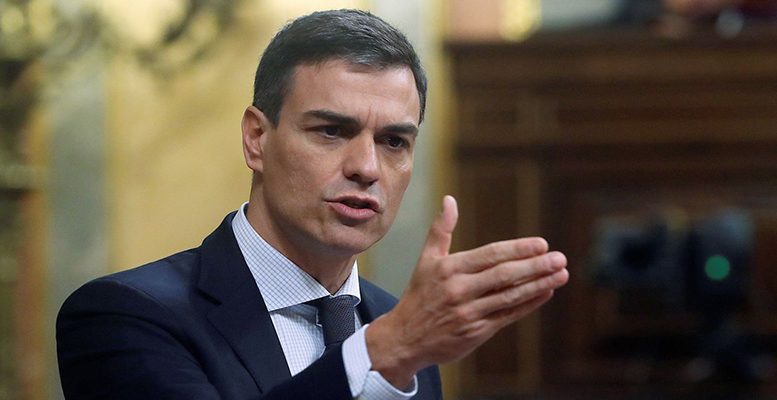The President of the Government, Pedro Sánchez, defended, on Wednesday, the former presidents of Andalusia Manuel Chaves and José Antonio Griñán after their conviction in the ERE case. Pedro Sánchez believes that “they are paying for the sins of others” , and avoided saying anything on “hypothetical future actions” such as the granting of a pardon.
In a press conference with the Prime Minister of Poland, Mateusz Morawiecki, Sánchez stressed that the two former Andalusian presidents resigned from their public responsibilities “more than five years ago” and at no time have they been accused of having profited, of having taken “one cent of a euro” or of illegally financing a political organisation.
“We can affirm that they are paying for the sins of others”, he stressed, without wishing to comment on the possibility of a pardon, which he described as a “hypothesis”. “We respect the steps that may be taken by the defence and the government will always act within the framework of the law and collaborate with the justice system”, he explained.
When asked expressly whether or not he considers the case of Griñán to be corruption and whether he rules out a possible pardon, Sánchez indicated that he respects as “always judicial decisions” and added that he has known the court ruling “after eleven years and with two private votes”.
“The Spanish government has not yet received the sentence and we will not be able to have a clear reading of what the causes are until September,” he said, insisting that both Griñán and Chaves “resigned from their political responsibilities more than five years ago”.
Sánchez has stressed that “there was no personal enrichment” but that there were “resignations more than five years ago, that they assumed their political responsibilities and said that his government is “clean” and has been “implacable” against corruption.
In addition, he stressed his condemnation of the behaviour of an executive “that took advantage” of a mechanism approved by the Parliament of Andalusia (that of the regional subsidies for the ERE), which he maintained “helped hundreds of workers and companies at a time of great difficulty”. “Neither Chaves nor Griñán can be said to have had anything to do with what I have pointed out before”, he insisted.
In this context, he avoided “speculating” on “hypothetical future actions” such as a pardon and insisted that “what the Government is going to do” is to act “within the framework of the law and collaborate with the justice system”. “As we have always done”, he said.





